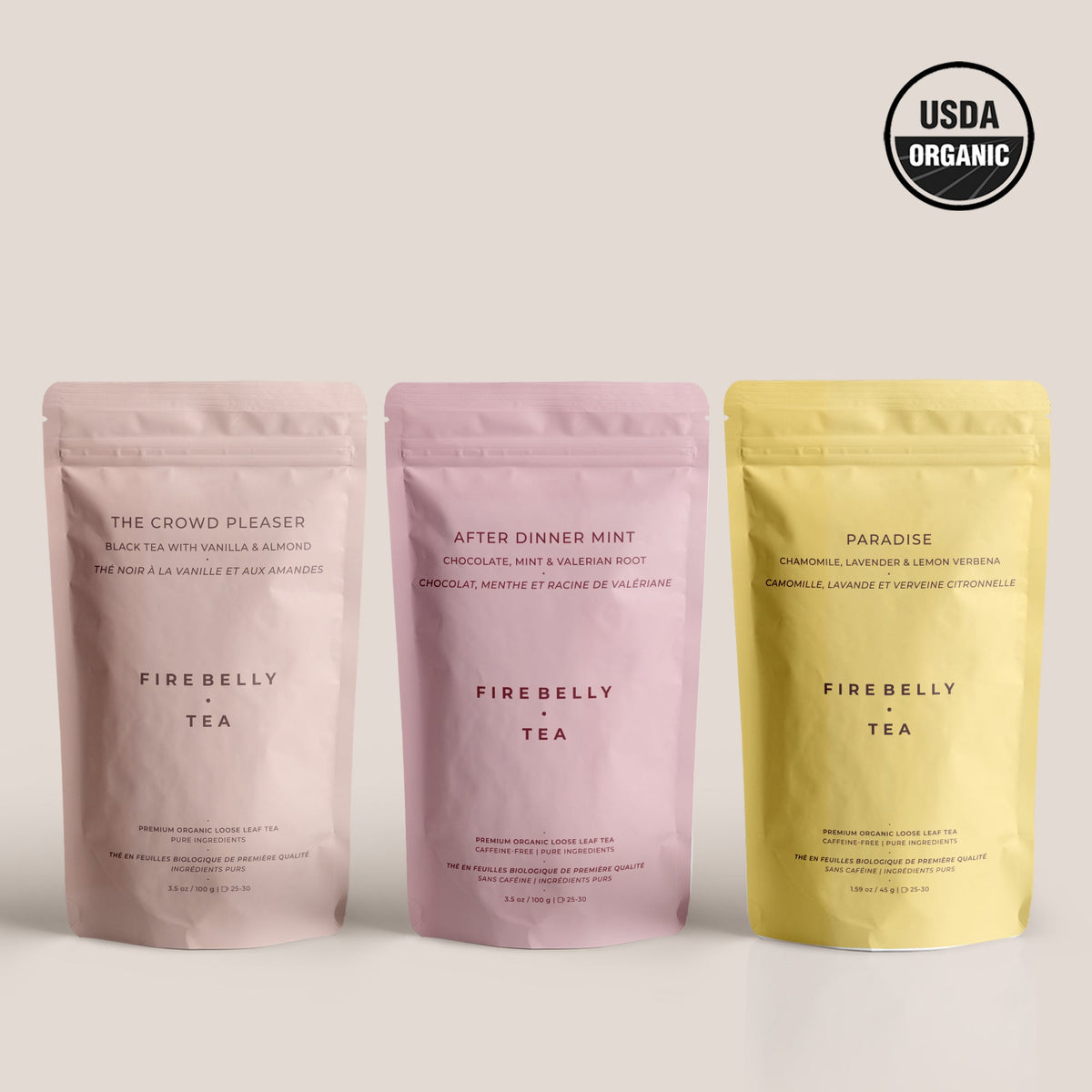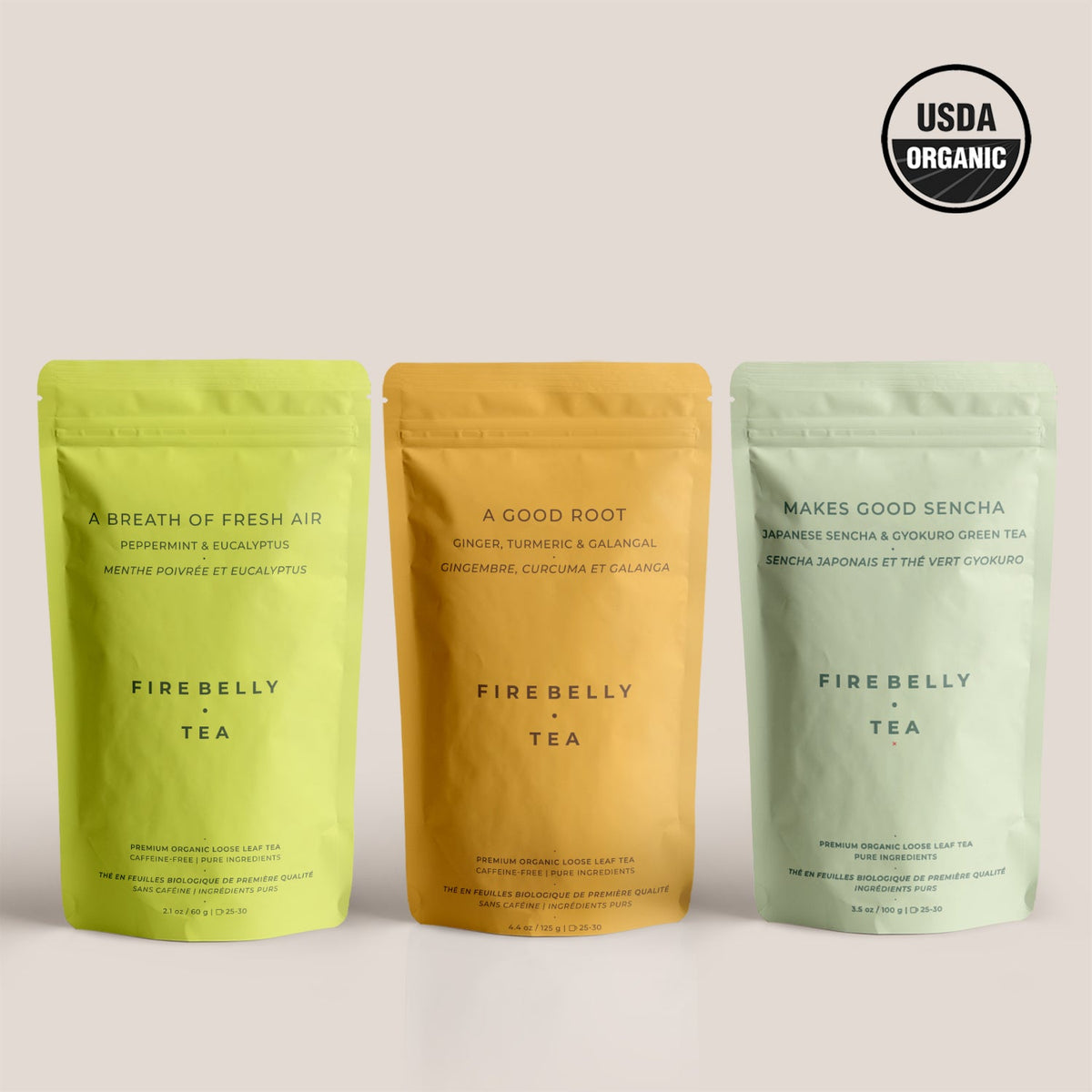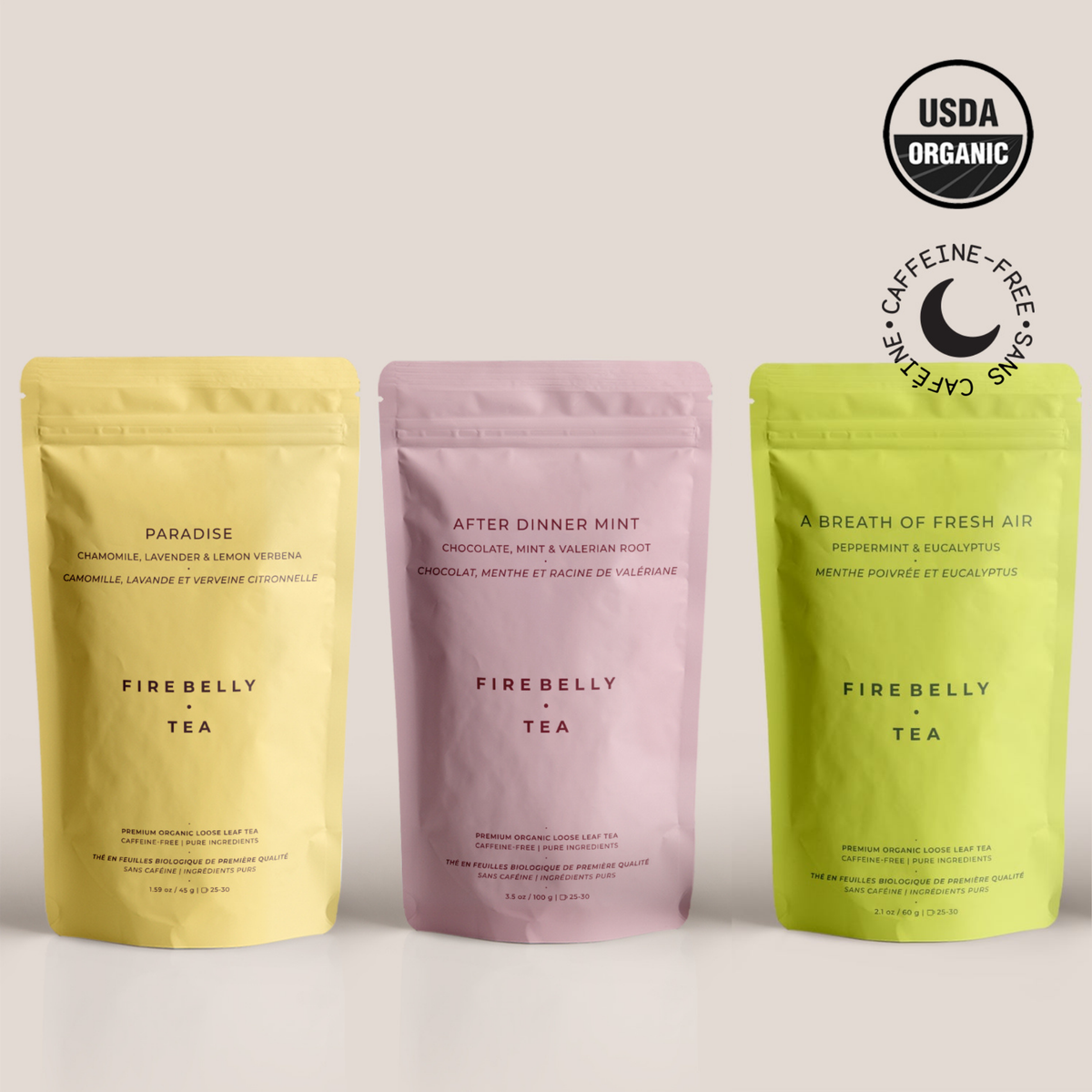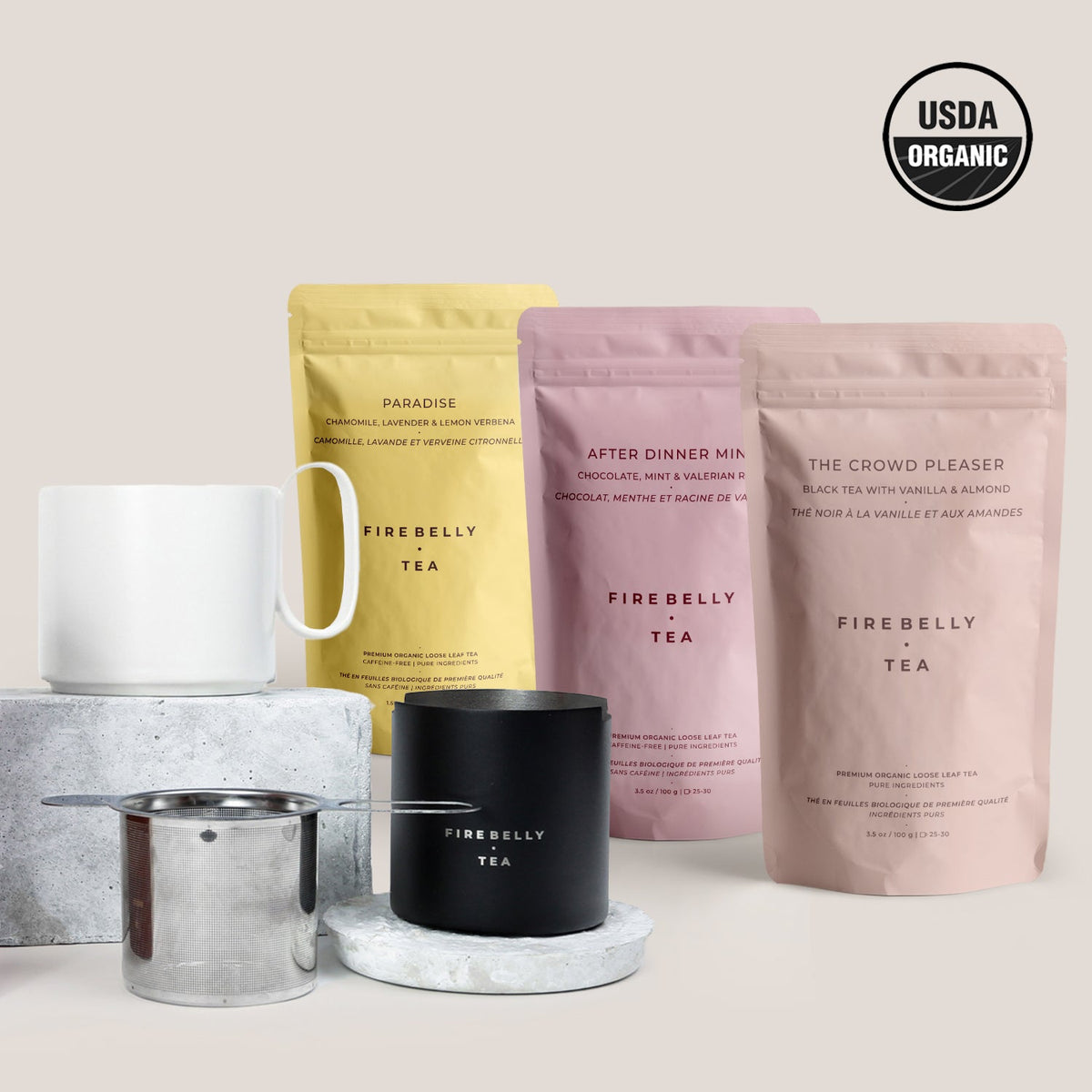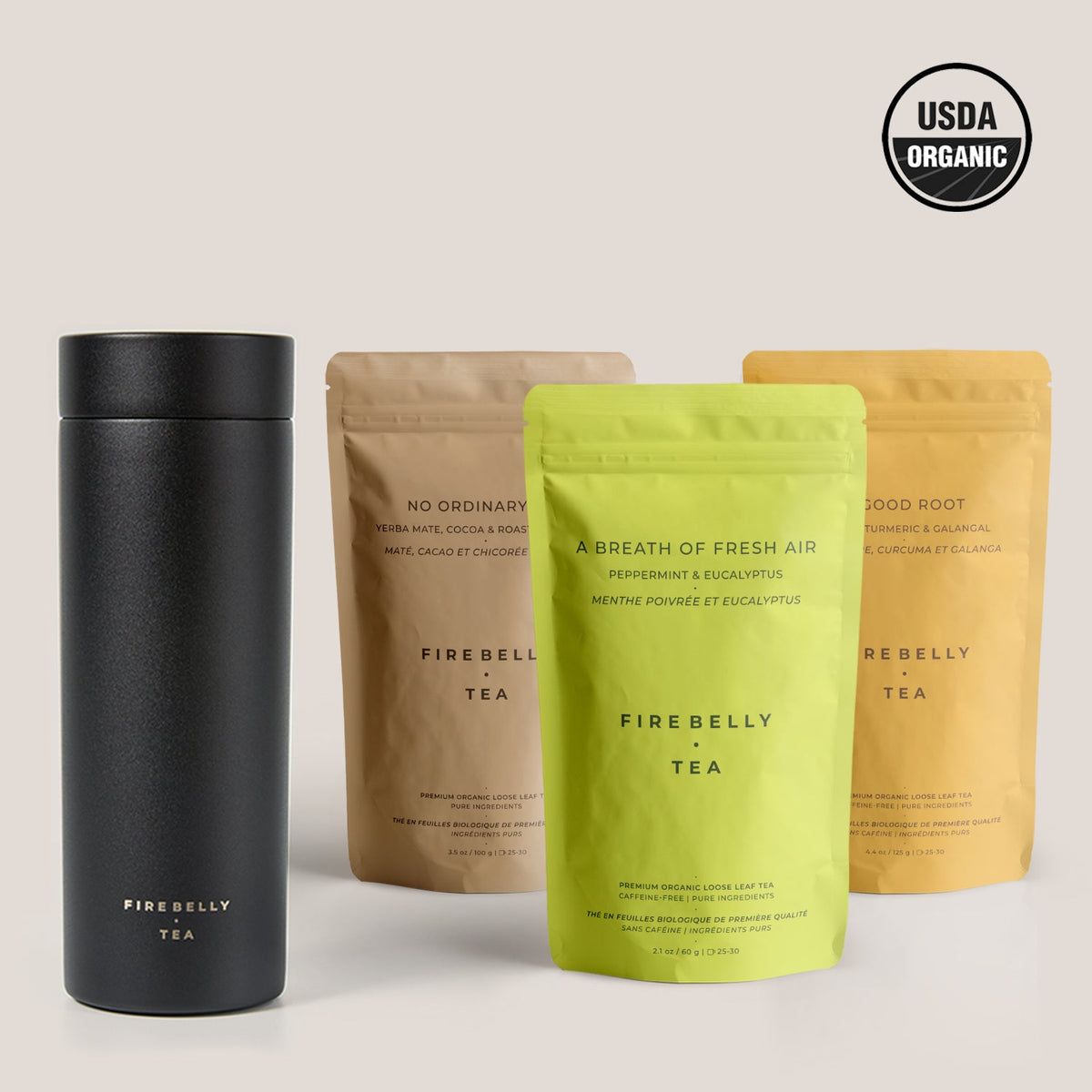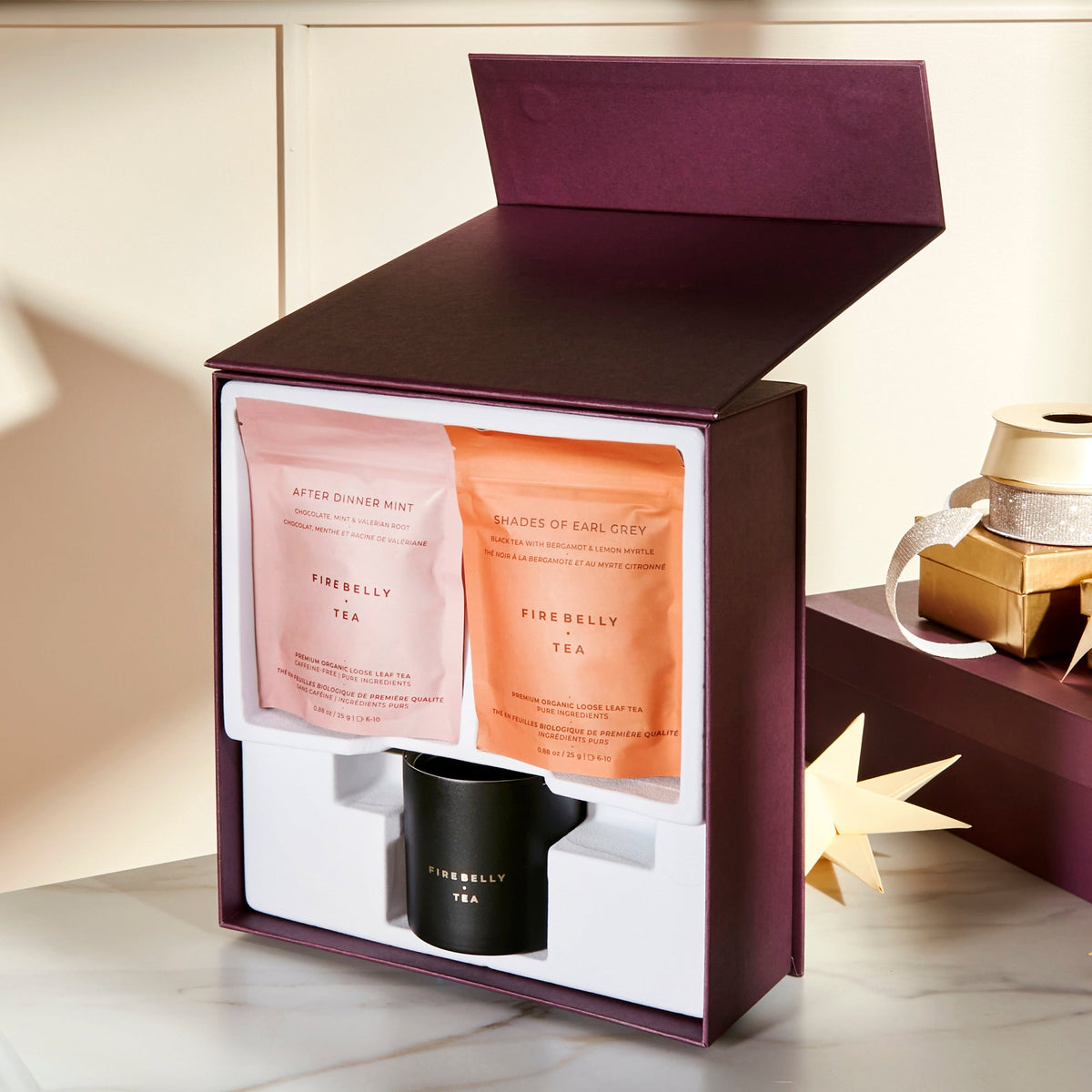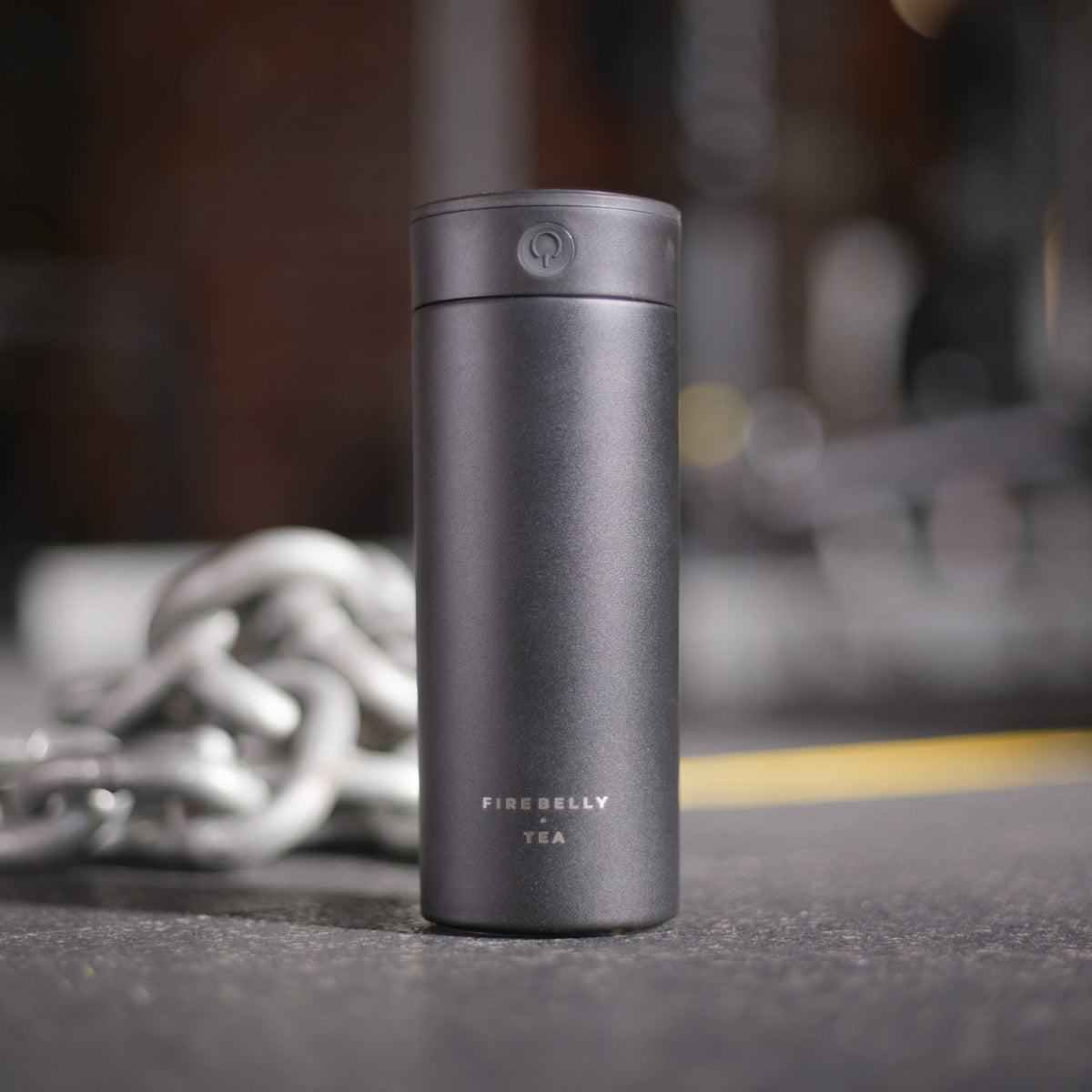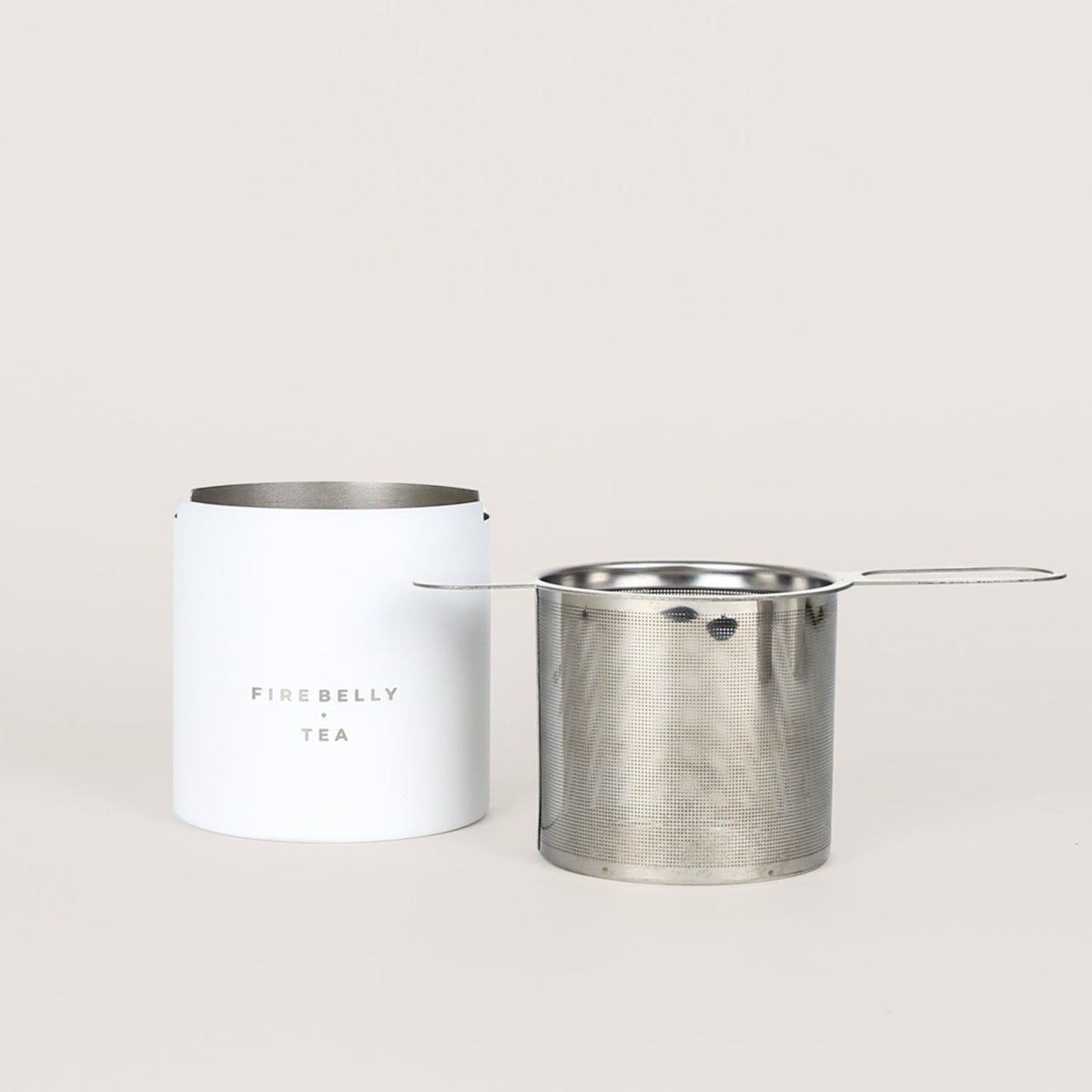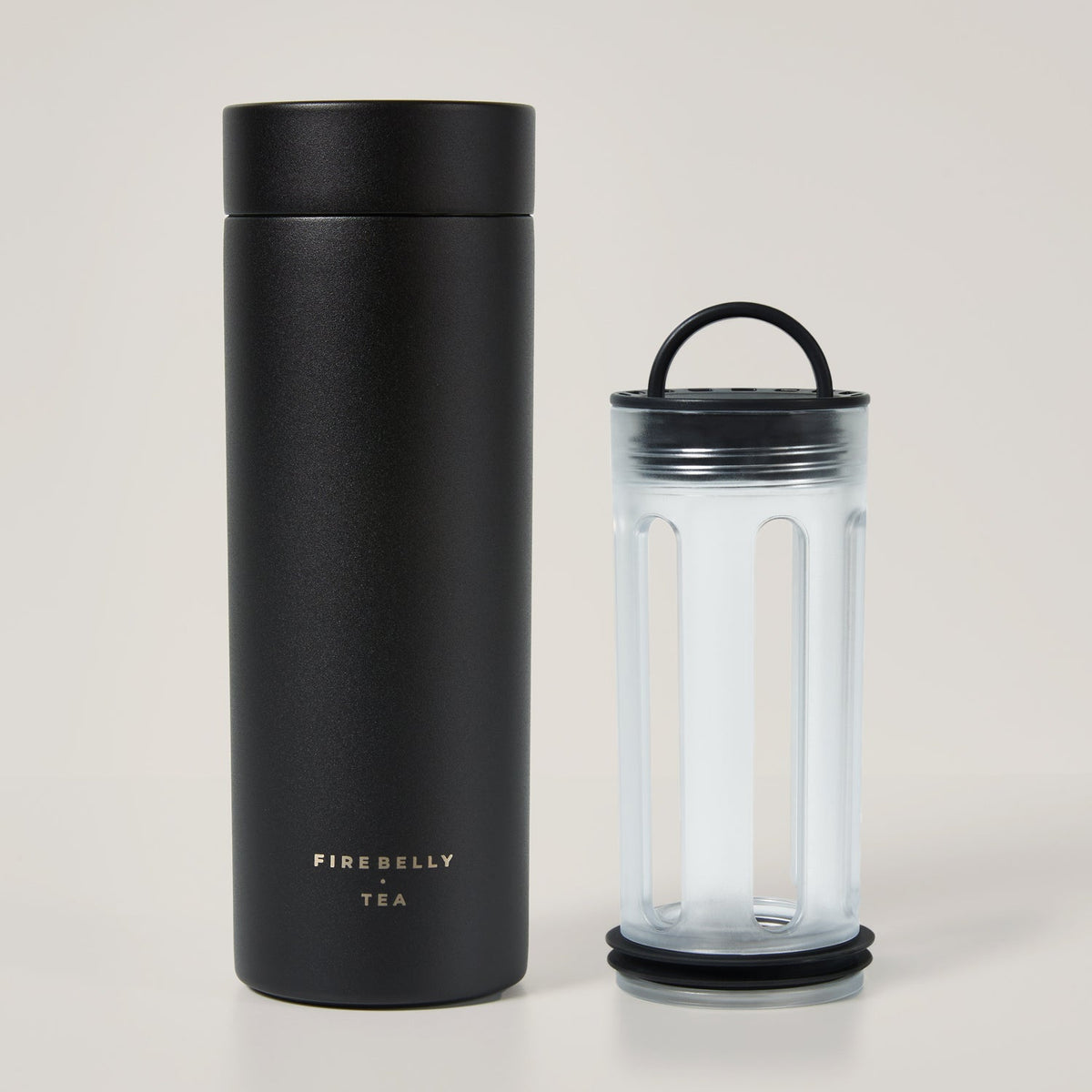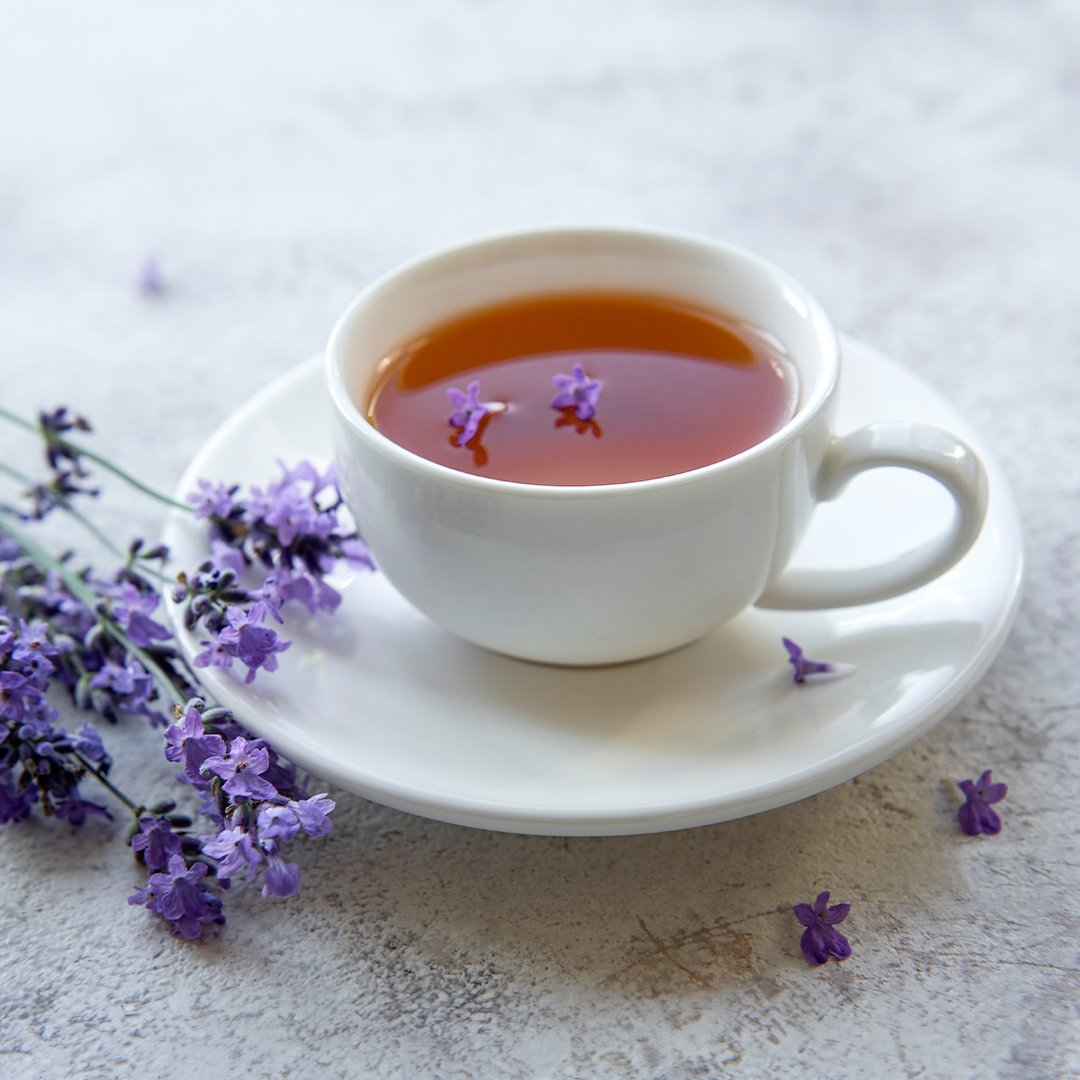The fragrance from the lavender flower is considered of the most well-known and loved scents worldwide. For over 2,500 years, this potent purple flower has been a star ingredient in perfumes for ancient Egyptian royalty. Today, lavender is a main ingredient in super-scented products like soap, laundry detergents, lotions, perfumes, essential oils, and, of course, tea.
The calming effects of lavender have been widely studied, and inhaling the delicate woodsy and floral scent creates an instant calming feeling. It's no wonder that drinking lavender tea creates the same calming effect in people, making it a perfect tea to sip before going to sleep. In this article, we will explore the several health benefits of lavender tea and how this warm relaxing cup of tea can do much more than soothe your soul.
What is Lavender Tea?
Anyone who has spent time drinking lavender tea knows this fragrant tea is a pleasure for the senses. Lavender tea is made by pouring hot water onto the loose lavender buds of the English lavender plant (Lavandula angustifolia) in a cup or teapot. Most lavender tea blends have a sweet floral scent that awakens our sense of smell and an equally sweet floral taste peppered with hints of rosemary or mint, while some of these tasty teas offer a smokey or woody undertone.
Unlike black tea and green tea from the Camellia sinensis plant, lavender tea is an herbal tea that is naturally caffeine-free. You can drink lavender herbal tea throughout the day and even before bedtime without any worry of not falling asleep.
The Difference Between Lavender Essential Oil and Lavender Tea
Although lavender teas and lavender oils can offer the same level of relaxation, the two products are vastly different. There is also a difference between lavender oil and lavender essential oil. It is important to note that you must only consume lavender oil if under the strict guidance of a trained medical doctor. Let's look at the three main products made from lavender:
Lavender Essential Oil
Lavender essential oil is a highly concentrated oil made through a distillation process. During the process, the lavender plant buds are boiled, and the condensation of the oils is then collected to create a pure lavender essential oil. It takes around 10 to 30 lavender plants to make one bottle of lavender essential oil. This process and the amount of lavender plants needed are the main reasons the essential oil can be expensive. Essential oils contain more of the healing properties of the plant.
Lavender Oil
Although the terms lavender oil, lavender essential oil, and lavender fragrance essential oil are often used interchangeably, there are significant differences between them. Lavender oil is an extract from the lavender plant that contains the flower's fragrance. A few drops of the extract are added to a carrier oil like almond or jojoba oil. Lavender oil has very little of the plant's healing properties and is typically used in diffusers or as fragrances in beauty products.
Lavender Tea
Lavender tea is made with lavender buds steeped in hot water in either a tea infuser or by placing a loose tea, like this one, in a cup or a teapot. Lavender tea offers a delicious, floral lavender tea taste and fragrance and also has incredible health benefits.
Brewing Lavender Tea: How to Brew The Perfect Cup
When you drink lavender tea regularly, you should know how to brew it right for maximum flavor and healthy properties. Herbal teas and herbal tea blends typically have delicate flower buds that release aromatic oils into the hot water giving the tea taste.
Brewing lavender tea is vastly different from green or black tea. Whether you use loose-leaf tea or tea bags, pouring boiling water over black or green tea is not advised because it can burn the leaves and leave you with a bitter-tasting cup of tea. This is not the case with most herbal teas like lavender tea; you can even boil the flowers in water to bring out all the flavors and that wonderful lavender fragrance.
-
The first step to making tea is to boil your water. Most tea kettles will indicate when the water has boiled - electric kettles will shut off, and stove-top kettles will whistle.
-
Boil some extra water to warm up the teapot or tea cup before you make your tea. Swirl the hot water around in your teapot for a few seconds, then discard the water.
-
Next, put your lavender tea or lavender tea blend in the teapot and add your hot water, cover, and let steep for three to ten minutes. A general rule of thumb to measure amounts for the perfect cup of tea is one heaping teaspoon for every cup. This means a four-cup teapot will need four heaping teaspoons of loose-leaf tea.
-
Strain the lavender buds or use a tea strainer like this to keep the contents neatly contained.
Lavender tea is naturally sweet and tastes great without adding sugar. If you feel like adding sugar, use very little to accent the already sweet floral notes of the lavender buds. Don't worry if you brew lavender tea for longer than suggested. Unlike green or black teas, your cup of lavender tea won't become bitter if over-brewed. You can store your lavender tea in a covered pitcher in the refrigerator for up to four days. Keep your loose-leaf lavender tea away from light, heat, and humidity.
The Top Lavender Tea Benefits
Drinking lavender tea regularly can offer many health benefits, from relieving stomach cramps to improving sleep quality and reducing inflammation. Let's look at how consuming lavender tea can help.
#1. Better Sleep
The top health benefit of lavender it's the ability to help improve sleep. We all know that lavender aromatherapy can help a person relax and get a night of restful sleep. Drinking lavender tea may have the same calming effect on the body and mind and may also help treat sleep disorders.
Insomnia and other sleep disorders can create health issues like heart disease, high blood pressure, and poor mental health. Drinking lavender tea before bed helps calm the brain by triggering specific chemical reactions in the nervous system, boosting dopamine production, and reducing cortisol levels.
One study featuring sleep-disturbed postnatal women improved the quality of their sleep by inhaling the soothing scent ten times a day for four days a week over eight weeks compared with the placebo group who had less desirable sleep.
#2. Reduces Inflammation
Lavender tea contains anti-inflammatory properties that help reduce inflammation preventing the onset of health conditions such as heart attacks and strokes. A massage with the calming aroma of lavender oil and a calming lavender tea can help alleviate pain by reducing muscle and joint inflammation and minimizing muscle spasms.
#3. Better Functioning Immune System
Many teas boost the immune system - this includes lavender tea. Loaded with antioxidants and anti-inflammatory properties, lavender helps balance out your immune system and keeps it working properly. The high levels of vitamin C, calcium, magnesium, and many other nutrients work together to help the body fight illness and infection.
#4. Better Digestive Health
Like many other herbal teas, lavender can help soothe an upset stomach and reduce stomach-related conditions like nausea, diarrhea, and stomach cramps. The anti-inflammatory properties relieve irritated stomach muscles, easing pain and reducing gas, bloating, and indigestion.
The scent of lavender blossoms is a digestive stimulant that helps produce bile. Bile helps the body break down and assimilate foods more effectively in the digestive system. The calming effect of the scent of lavender flowers triggers a chemical reaction in the brain which may help stop the feelings of nausea, and making lavender tea is a great way to soothe an upset stomach.
#5. Relieves Menstrual Pain
Lavender tea already helps with bloating and pain. Still, evidence supports that the anti-inflammatory effects of lavender tea may also aid women in dealing with the discomfort and pain that comes with menstrual cramps.
A 2015 study with several young adult women showed that inhaling the scent for 30 minutes daily for the first three days of their menstrual cycle had less painful cramping after two months than others in a control group. Applying lavender oil with a carrier oil like jojoba or almond oil may also help reduce menstrual cramps.
#6. Detoxifies the Body
The antioxidants in lavender tea help eliminate toxins and free radicals in the body. Toxins can come from pollution and poor dietary habits, such as consuming too much alcohol or smoking, and can cause free radicals. These free radicals can damage human cells, causing them to mutate or break down, a process known as oxidative stress, and can cause several health problems, such as cancer and premature aging.
#7. Respiratory Health
Breathing in the scent of lavender flower buds or even dried lavender buds can induce relaxation instantly. It only makes sense that as you sip your warm cup of tea, the scent of the fresh tea lingers in the air and enters your nostrils, making you feel relaxed. You can even place lavender patches on the chest, which promotes relaxation, reduces anxiety symptoms, aids sleep issues, and opens up the lungs for better breathing.
That fresh scent can do more than make you feel at ease; it can also help people with breathing problems. The antimicrobial and anti-inflammatory properties can help the muscles in your throat and chest open airways and make breathing easier. These properties also treat bacterial infections of the lungs and throat, such as colds, coughs, throat irritation, or congestion.
#8. Helps With Anxiety
Walking through a field of fresh lavender flowers or inhaling dried lavender flowers can calm your nerves and open up the senses. Clinical trials found that drinking lavender tea can help reduce feelings of stress and anxiety. The benefits of lavender tea on the brain and nervous system are that it helps stimulate certain parts of the brain, sending messages and communication between brain cells that generates a calm and positive mood.
#9. Better Skin and Hair
One of the other benefits of lavender is to help heal cuts, burns, and other skin blemishes and even wounds. Lavender can help produce collagen for fast-acting skin healing to heal cuts, burns, and wounds. In a recent study, massaging lavender oil into the skin for two weeks helped reduce wound swelling and redness.
Want better-looking and healthier hair? Lavender may help stimulate hair growth. Studies show that massaging lavender oil into the hair and scalp helps generate hair growth and heal damaged hair. Drinking a cup of lavender tea, you'll get all of those same lavender tea health benefits because of all the antioxidants in the tea.
The Possible Side Effects of Drinking Lavender Tea
Lavender tea is considered safe without any side effects, but there are certain circumstances where people may have some adverse effects from drinking the tea. Young boys and pregnant women should avoid drinking lavender tea because it could affect hormone levels producing estrogen in boys and affecting estrogen levels in pregnant women.
And some people may have an allergic reaction to inhaling the scent. Always check with your doctor to see if lavender tea, culinary lavender, or oils are safe for you to take.
Let Lavender Tea Into Your Life
If you choose to drink lavender tea for its many healthy benefits, great taste, or soothing scent, lavender is an excellent alternative to coffee. You can even combine lavender with green or black tea for a full-on floral flavor experience. We recommend you choose a loose tea like this delicious blend over tea bags to get the most taste, aroma, and benefits. Take your tea tasting to the next level with lavender tea.
